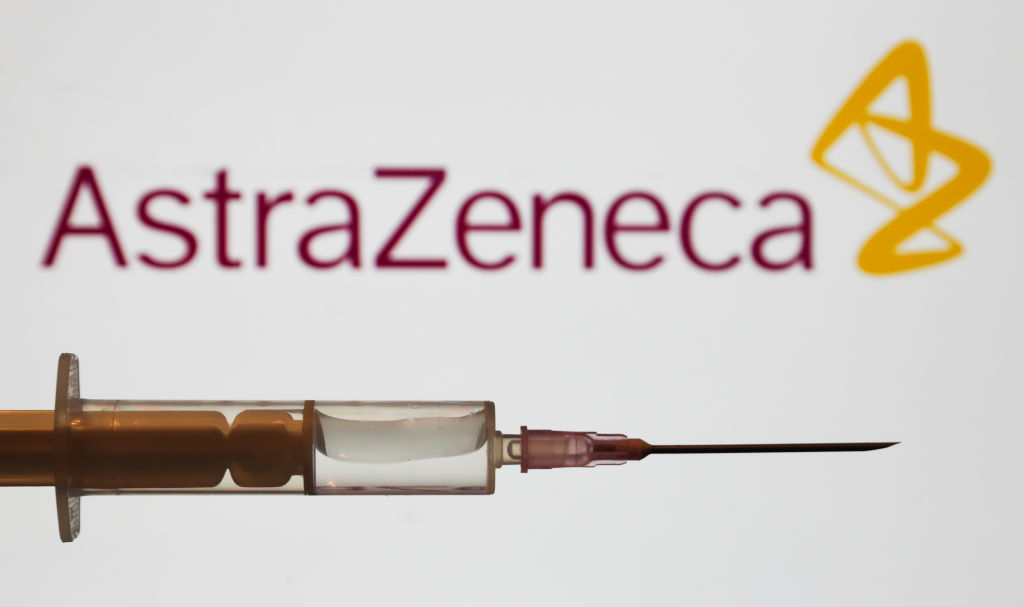
This story has been updated to reflect AstraZeneca’s vaccine trial resuming.
AstraZeneca, the U.K.-based pharmaceutical company behind one of the world’s most promising COVID-19 vaccine candidates, has resumed its U.K. trial after pausing it due to “a single event of an unexplained illness,” the company announced Sept. 12.
While AstraZeneca did not initially specify the nature of the study participant’s “unexplained illness,” an anonymous source told the New York Times that a trial participant in the U.K. was recently diagnosed with an inflammatory condition that affects the spinal cord.
Following a safety review, AstraZeneca, which co-developed its vaccine candidate with Oxford University, said an independent group of investigators concluded that the U.K. trial is safe to resume.
It is not uncommon for drug or vaccine trials to hit snags, even at advanced stages. Indeed, part of the reason vaccines go through multiple phases of testing, with increasingly large numbers of patients, is to catch rare but potentially serious side effects.
“Quite often, clinical trials get paused,” says Dr. Paul Duprex, director of the University of Pittsburgh Center for Vaccine Research. “A pause in a clinical trial is a voluntary action and it basically shows that the process is working. It’s not full steam ahead, no brakes on the car, we have to get this over the finish line at all costs.”
A review does not necessarily mean a vaccine candidate is unsafe, nor that the trial will be disbanded. “Pause doesn’t mean stop,” Duprex says. “It means we’ve taken our foot off the accelerator to do due diligence.”
AstraZeneca’s decision to pause its trial may actually inspire confidence in the scientific process.
Some medical experts and members of the general public have expressed concern that political pressure may prompt pharmaceutical companies to rush out a COVID-19 vaccine before it has been proven safe and effective. U.S. President Donald Trump has repeatedly said he wants a vaccine approved by Election Day in November, for example.
Pharmaceutical companies have pushed back. In a pledge released this month, the CEOs of nine pharmaceutical companies, including AstraZeneca, vowed to “stand with science” and reaffirmed their “ongoing commitment to developing and testing potential vaccines for COVID-19 in accordance with high ethical standards and sound scientific principles.”
AstraZeneca’s decision to pause its highly publicized (and potentially lucrative) trial shows that commitment. Dr. Anthony Fauci, the director of the National Institute of Allergy and Infectious Diseases and the country’s top COVID-19 expert, called the decision a “safety valve,” albeit an “unfortunate” one.
Duprex adds that pharmaceutical companies know their coronavirus trials are happening under a global microscope, and will therefore likely operate with a huge amount of caution.
“This is just part of a normal process,” he says. If we weren’t in a pandemic, “we would not be on the phone talking about this.”
More Must-Reads From TIME
- The 100 Most Influential People of 2024
- Coco Gauff Is Playing for Herself Now
- Scenes From Pro-Palestinian Encampments Across U.S. Universities
- 6 Compliments That Land Every Time
- If You're Dating Right Now , You're Brave: Column
- The AI That Could Heal a Divided Internet
- Fallout Is a Brilliant Model for the Future of Video Game Adaptations
- Want Weekly Recs on What to Watch, Read, and More? Sign Up for Worth Your Time
Write to Jamie Ducharme at jamie.ducharme@time.com